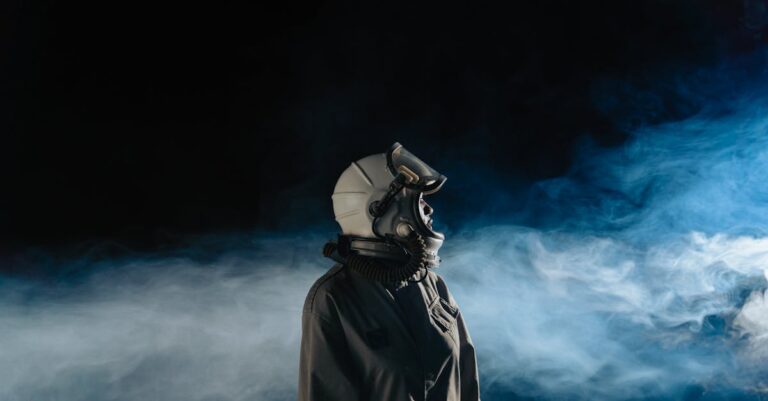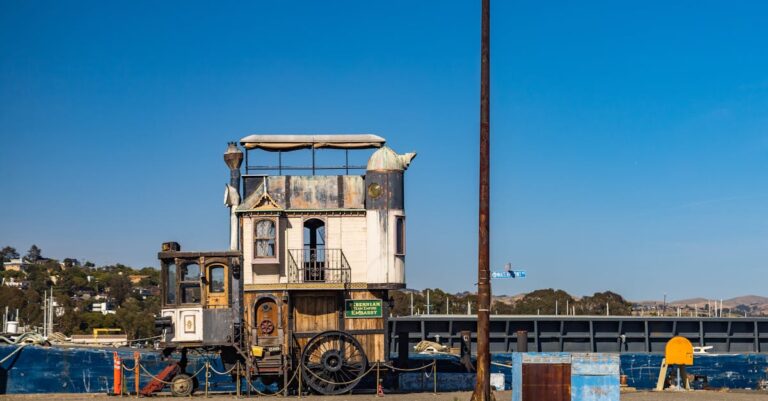
The forge fire crackled, casting jagged shadows across Eli Tremain’s calloused hands. The air reeked of smoldering oak and iron, a scent that had clung to him since the first cannon blast shattered the dawn quiet. His son, Samuel, had left for the patriot camp three days prior, his boots crunching over frost-brittle grass as he vanished into the mist. Now, Eli’s hammer rang against the anvil like a heartbeat, each strike a prayer for a boy who might not return.
The tavern door slammed open, sending a gust of cold air through the smoky room. Captain Halvorson, his jaw set like granite, strode in with the weight of a man who’d seen too much. “They’ve taken him,” he said, not a question but a fact. The room stilled. Eli’s hammer fell silent, the sound of it echoing in his skull like a death knell.
“Where?” Eli’s voice was raw, but his hands remained steady as he wiped soot from his face.
Halvorson’s eyes flicked to the window, where the distant rumble of artillery thudded against the sky. “Brooklyn. The British took all the prisoners last night. Your boy’s there, if you want to find him.” He paused, then added, “They’re hanging two more at sunrise.”
Eli’s breath hitched. He thought of Samuel’s laugh, the way it had risen above the chaos of the last battle, fearless and bright. Now it was gone, swallowed by the same war that had turned his town into a battlefield.
The next morning, Eli stood at the edge of the camp, his coat soaked through with dew. The British tents loomed like dark fungi, their flags snapping in the wind. He’d traded his hammer for a musket, its weight unfamiliar in his hands. The plan was simple: slip in, find Samuel, and get out before the guards noticed. But the camp was a labyrinth of fear, and every shadow seemed to whisper secrets.
He found Samuel near the stockade, his wrists bound with rope, face bloodied but defiant. “You shouldn’t have come,” Samuel said, his voice hoarse but steady. “They’ll kill you too.”
“Not if I get you out,” Eli replied, crouching to cut the ropes with a knife he’d stolen from a guard’s belt. The blade was dull, but it would work. As he worked, he heard the clatter of boots and the shout of a guard. “There!” the man barked. “The blacksmith’s son!”
Eli didn’t wait. He grabbed Samuel’s arm and ran, his boots pounding against the frozen earth. The camp erupted behind them, shouts and the crack of musket fire. They dodged between tents, Eli’s mind racing. He’d always thought of himself as a maker of tools, not a fighter. But now, every step was a rebellion against the fate that had tried to claim his son.
They reached the woods just as the sun crested the horizon, painting the sky in hues of amber and crimson. Eli collapsed against a tree, his breath ragged. Samuel sat beside him, his face pale but alive. “You saved me,” Samuel said, his voice trembling.
“I couldn’t let them take you,” Eli replied, his hand brushing the boy’s cheek. The weight of the day pressed on him, but for the first time in weeks, he felt something close to hope. The war was far from over, but for now, they were free.
In the weeks that followed, Eli and Samuel worked in secret, helping other prisoners escape. The town became a patchwork of resistance, each act of defiance a small victory against the tide of war. Eli’s forge became a refuge, its fire a symbol of resilience. And though the road ahead was uncertain, he knew one thing: as long as his son was alive, there was still reason to fight.
The final battle came in the fall, when the British tried to retake Brooklyn. Eli and Samuel joined the patriot forces, their muskets loaded with bullets made in his own forge. The air was thick with smoke and the cries of men, but Eli fought with a clarity he’d never known. He wasn’t just defending his town—he was protecting the future Samuel might have.
When the battle ended, the town was scarred but standing. Eli stood at the edge of the field, watching as the sun dipped below the horizon. The war would continue, but for now, they had won. And in that moment, he knew: the iron of Brooklyn would never be broken.


